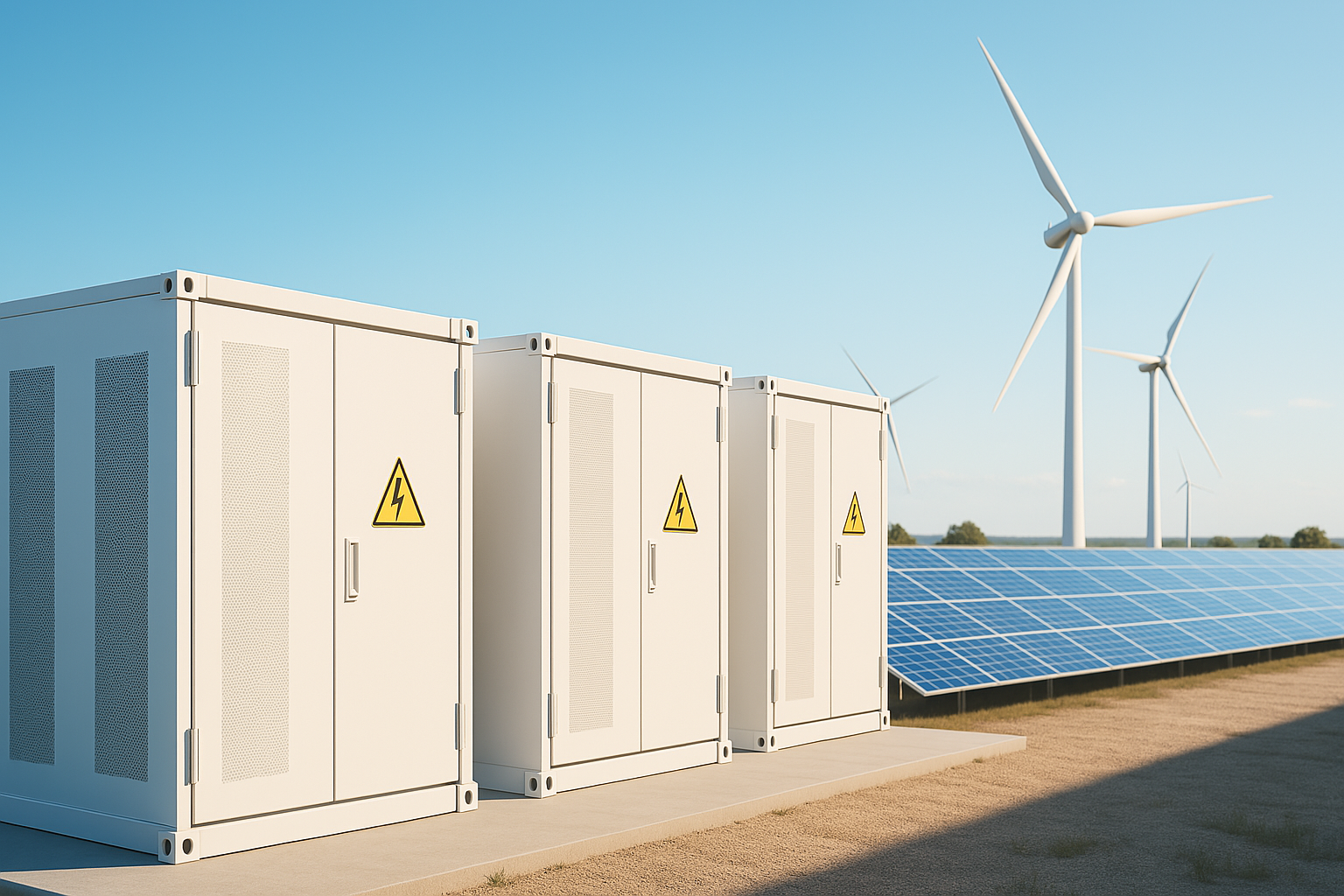A New Risk-Sharing Model Emerges in Storage Offtake Contracts
In a notable shift toward risk distribution in clean energy procurement, EDP Renewables North America and Ava Community Energy have finalized long-term energy storage agreements totaling over 1GWh that feature mechanisms to share future policy-driven cost risks. The contracts represent a growing trend in which power purchase agreements (PPAs) incorporate financial flexibility to account for uncertainties tied to import tariffs and tax credit eligibility—factors that have added volatility to clean energy project economics in the U.S.
The structured risk-sharing approach employed in these deals marks a significant departure from traditional fixed-price agreements, signaling a maturation of market strategies in response to evolving federal policy and global trade tensions.
Navigating Tariffs and ITC Uncertainty in the Post-IRA Era
The agreements were shaped against a backdrop of heightened regulatory unpredictability. Earlier in 2025, negotiations between Ava and EDP Renewables stalled temporarily due to mounting concerns over potential reinstatement of U.S.-China import tariffs. While those specific tariffs have since been suspended, the threat of their return continues to cloud financial forecasts for energy storage developers reliant on imported battery components.
Simultaneously, debate surrounding the passage of the comprehensive “One, Big, Beautiful Bill Act” brought the status of clean energy tax credits into question. While the bill ultimately maintained energy storage incentives under the Inflation Reduction Act (IRA), the contentious debate created hesitation among developers banking on predictable long-term subsidies.
Particularly relevant are new provisions under Foreign Entity of Concern (FEOC) guidelines, which restrict access to investment tax credits (ITCs) for projects sourcing components from companies linked to certain nations. These constraints are already pushing developers to reconsider supply chain strategies and contract structures.
Two Projects, One Risk-Adaptive Framework
The larger of the two agreements centers on EDP’s Sonrisa Solar and Storage project in Fresno County, California. Ava Community Energy has committed to a 20-year PPA for 200MW of solar generation paired with 184MW/736MWh of battery energy storage system (BESS) capacity. The contract includes not only energy delivery but also capacity, ancillary services, and renewable energy credits.
The second deal expands Ava’s footprint in EDP’s Scarlet complex, located adjacent to the Sonrisa site. Ava is set to offtake 70MW/280MWh of new BESS capacity from the “Scarlet III” expansion. The original Scarlet project, completed in 2024, already supplies 100MW of solar and 30MW of storage to Ava, with additional capacity contracted to San Jose Clean Energy.
Both projects are contractually scheduled to commence operations by June 30, 2027, though EDP is targeting an earlier commercial operation date of December 31, 2026.
Risk Allocation as a Strategic Norm
The evolving terms of these contracts reflect a broader shift in market behavior. Ava, in documentation prepared for its July 2025 Board of Directors meeting, noted that developers are no longer willing to absorb all policy-related cost uncertainties. Instead, developers and offtakers are increasingly negotiating shared exposure models.
The Sonrisa and Scarlet agreements incorporate pricing adjustment clauses tied to specific material cost impacts arising from tariff changes. These clauses are structured with defined price caps, ensuring that Ava bears a portion of future tariff-related cost escalations but within controllable financial boundaries.
Ava previously employed a similar model in a renegotiated PPA with Intersect Power, while Sacramento Municipal Utility District (SMUD) has also used tariff-adjustable structures in contracts with developer DESRI, according to reports from Energy-Storage.news. These developments underscore a growing consensus that flexible pricing terms may be necessary to ensure project viability under current policy volatility.
Storage Procurement Faces Rising Complexity
From a procurement perspective, these agreements exemplify how market participants are internalizing risk amid rising uncertainty over global supply chains and domestic policy shifts. While storage remains a cornerstone of California’s decarbonization strategy, the financial assumptions underpinning project economics are under strain.
By introducing contractual terms that explicitly address external risks, developers like EDP are improving the bankability of storage projects and reducing the likelihood of stalled deployments due to midstream policy changes. Offtakers such as Ava, meanwhile, are accepting limited risk exposure in exchange for long-term project continuity and resilience.
The use of 20-year terms in both PPAs also reinforces the long-duration commitment to energy storage as a foundational grid asset. With increased regulatory scrutiny over tax credit eligibility—especially related to FEOC compliance—projects that can demonstrate financial adaptability stand a better chance of securing financing and interconnection approval.
Policy Risk Management Without Clear Precedent
Despite the positive momentum, executing these contracts will not be without challenges. The tariff adjustment clauses introduce a layer of complexity that may complicate future project valuations and investor due diligence. Moreover, the lack of precedent for applying FEOC rules to BESS components raises concerns about retroactive ineligibility for ITCs.
Timeline pressures could also intensify if regulatory interpretations shift. Although EDP aims for a late-2026 commercial start, any delays in component delivery, particularly from restricted foreign vendors, could jeopardize both operational targets and tax credit eligibility.
Toward Institutionalized Flexibility in Clean Energy Contracts
The Ava-EDP agreements point to a future where energy procurement is defined as much by financial engineering as by technology. With federal energy policy becoming more fluid and international trade conditions remaining fraught, utilities and CCAs are likely to favor offtake agreements that allow for tactical adjustments without renegotiation.
Over time, mechanisms such as tariff pass-through pricing and ITC contingency clauses may become standard features in large-scale solar and storage procurement, especially for projects relying on foreign-sourced equipment.
As developers refine contractual models to better align with regulatory realities, and offtakers accept a more active role in risk management, the sector may witness more resilient growth—even in the face of volatile policy environments.

